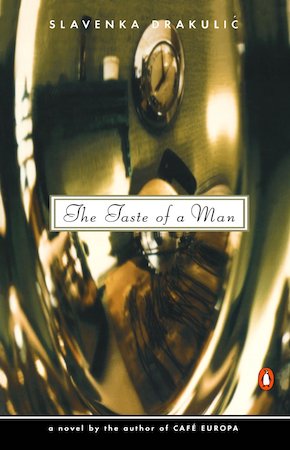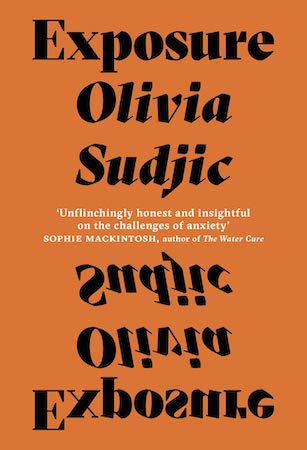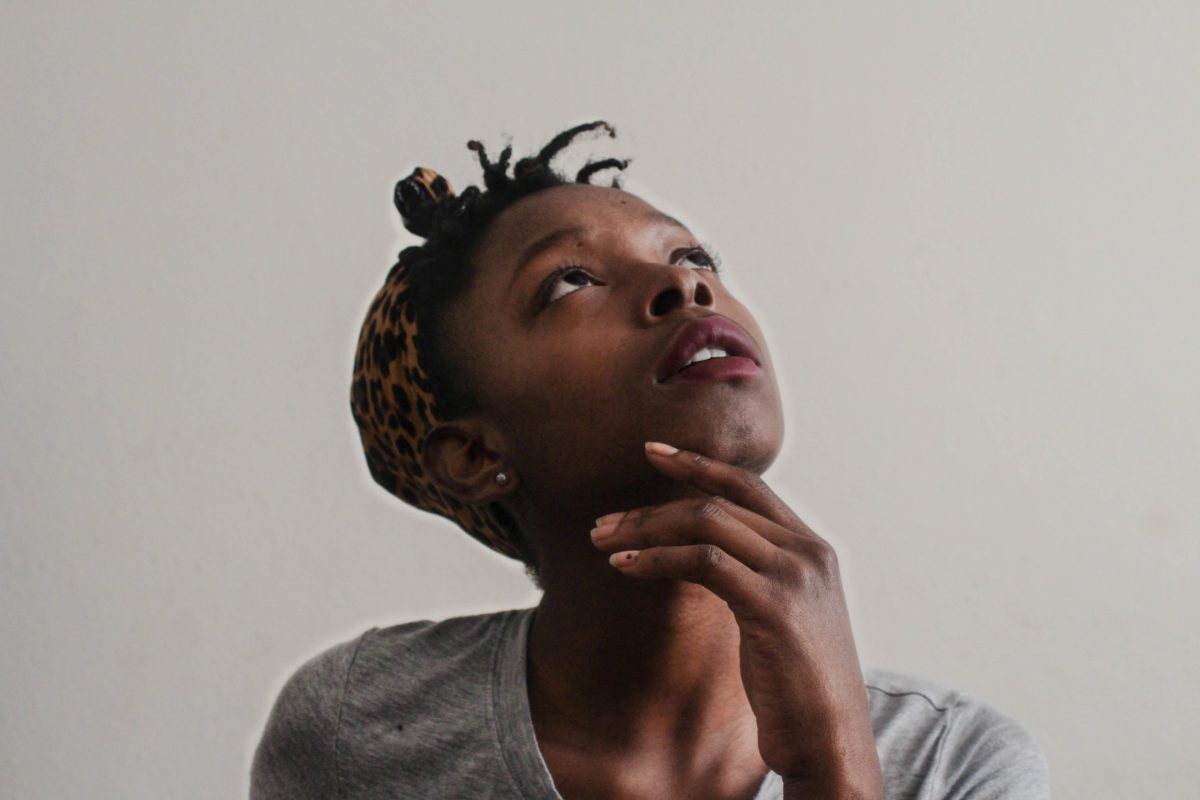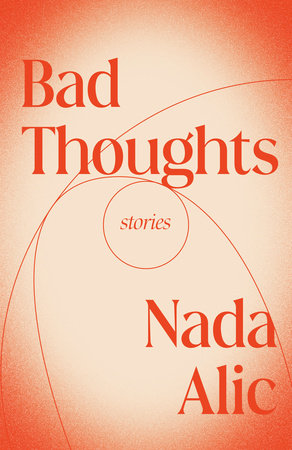I tend to overthink. At some point, I started writing my thoughts down as a way of purging them from my mind. It’s less like journaling and more like a raw, incoherent document on my desktop that functions as my own private exorcism. I think part of me also wanted proof that I wasn’t just a random collection of hormones, phobias and song lyrics playing on a loop, as I’ve often feared.
When I started writing my story collection Bad Thoughts, I scrolled through my thoughts document (labelled “TAXES…LOOK AWAY!) in search of story prompts. It wasn’t until I completed my final edits earlier this year that I started to notice patterns emerging. This groundbreaking realization, of how writing works, helped me see myself more clearly. Major themes surfaced, like fear of motherhood, being an artist, waiting for real life to begin; also nut allergies for some reason.
I’ve always been drawn to books by writers who possess a similar compulsion to think their way out of a problem or a state of being. From lyrical essays to fiction, to experimental memoir, these are books by writers caught in thoughtful rumination, using an event or a question as a jumping off point to explore broader philosophical themes in a way that feels alive and porous and complex (also me trying to describe wine). It’s the exact opposite of being online, where everything is flattened on a screen and reduced to binary thinking, a simplistic one liner or an overly airbrushed image.
More than anything, I love books that allow big ideas room to breathe without forcing an answer or claiming to have it all figured out. There is a courage that this type of interiority demands, which defies what Melissa Febos calls in her book Body Work, “the fantasy of toughness—the idea that lack of feeling signified mastery of it.” As someone who processes the world in an internal way, reading dispatches from the interior of someone else’s mind makes me feel less afraid of my own mind, and more importantly, less alone.
So Many Olympic Exertions by Anelise Chen
Written in fragments, So Many Olympic Exertions makes unlikely connections between sports and the meaning of life. The book uses sports as a vehicle to unpack life itself, the absurd, arbitrary rules we inflict upon ourselves and why we keep going at all. For the narrator, Athena Chen, a former competitive swimmer and doctoral student, news of an ex-boyfriend’s suicide sets off an existential crisis and upends her already precarious internal world. The writing has a shapeshifting quality, combining self-help, obscure sports facts, dissertation and memoir, she returns to the existential questions of why we live and what for. Meaning so often feels elusive, but it forces us to search for it in unlikely places, like sports, philosophy, and other people.
Motherhood by Sheila Heti
“I feel like a draft dodger from the army in which so many of my friends are serving—just lolling about in the country they are making, cowering at home, a coward,” Heti writes in Motherhood. The narrator contemplates the life altering decision to become a mother in the waning days of her fertility. Motherhood threatens her freedom and selfhood as an artist, but she also considers the ways in which it could save her from the decadence and self-indulgence of her life as a writer.
Throughout the book, she engages in an ongoing dialogue with the I Ching, which she consults as a divine authority and confidant. Elsewhere, she separates her thoughts into phases such as, “bleeding,” “follicular” and also, “book tour.” The fluidity in her prose and structure mimics the way thoughts appear, with seeming randomness, but the payoff comes from witnessing the greater cosmic order to it all: that arriving at an answer isn’t always the point. That intimately wrestling with the mystery is its own reward.
Grey All Over by Andrea Actis
Andrea Actis’ debut book, Grey All Over, which she sometimes describes as a “collaboration with my father’s ghost,” is the result of a decade’s worth of materials compiled into a poetic, funny, and deeply moving interrogation of grief. Her work is not quite memoir, not quite experimental poetry, but a living account of a daughter and her now-disembodied father, Jeff, and the generational traumas, historical contexts, and spiritual dimensions that continue to tether them to one another. Through transcribed conversations, text messages, screenshots, photographs, typo-laden dreams, and emails about her father’s paranormal encounters, Actis employs the “pragmatics of intuition” as an organizing principle. With minimal aesthetic interference, she leaves us with a raw portrait of the haunting, messy, unresolvable nature of grief. It’s one of the strangest books I’ve ever read. I loved it.
300 Arguments by Sarah Manguso
“I don’t love writing. I love having a problem I believe I might someday write my way out of,” argues Manguso in 300 Arguments: a slim collection of aphorisms that I find myself returning to every few months in search of wisdom and insight. In it, she takes on every kind of human experience, from art, relationships, ambition, despair, hunger, time, and cuts it right down to the bone; leaving only what is absolutely vital. In particular, the passage, “Instead of pathologizing every human quirk, we should say, By the grace of this behavior, this individual has found it possible to continue,” stuck with me while I was writing my book; so much so that I decided to include it as the epigraph. It so deftly captures our desire to reduce human complexity to an easily diagnosable set of symptoms. This impulse to flatten ourselves into fixed identities is not only dangerous, but an insult to ourselves as mysterious, divine beings. Unknowable to ourselves as much as to others.

The Taste of a Man by Slavenka Drakulic, translated by Christina Pribichevich-Zoric
This book is a bit of an outlier, but in the spirit of first-person interiority books that aim to subvert the form, it felt important to include. My friend Bruna from Croatia recommended it to me, and it haunted me for days after reading it.
The book is written from the perspective of the narrator, Tereza, a Polish poet and grad student, and includes little to no dialogue or other characters besides her lover, Jose, a Brazilian anthropologist, and brief mentions of his wife. Tereza recounts their obsessive love affair that turns into… cannibalism! I normally have zero interest in anything horror-related, but it was the power of being inside the narrators’ deranged thoughts that tricked me into devouring it (ha ha) in one sitting.
Tereza maintains an eerie calmness as she describes her obsession in graphic detail; conflating sexual desire with a primal hunger to consume her beloved, lust with bloodlust. As her appetite intensifies, she rationalizes that faith in God and love are forces much larger than morality. Towards the end, she is remorseless, proud even, having finally accomplished the ultimate union. The Taste of a Man fearlessly confronts taboo and reminds us that the mind can be a vulnerable place, and under the wrong circumstances, it is capable of self-deception, madness and harm.
Wow, No Thank You by Samantha Irby
“I have been stuck with a smelly, actively decaying body that I never asked for,” writes Irby, “and am constantly on the receiving end of confusing, overwhelming messages for how to properly care for and feed it.”
Wow, No Thank You was Samantha Irby’s third essay collection, but it was the first I’d encountered, back in the early days of the pandemic and was maybe the only thing that made me laugh out loud at the time. From her various medical conditions, true feelings about children, awkward foray into Hollywood, and domestic proclivities, Irby finds a way to laugh at the unique horrors and humiliations of being a person in a body. Her voice is manic, self-deprecating and brutally candid to the point of cringe. This has a disarming effect, and makes you feel like you’re in a private conversation between friends. In each essay, she jokes, adds long-winded asides, and doesn’t always learn a big lesson at the end, but you still come away from it feeling satisfied, and more importantly, seen.
Me and Other Writing by Marguerite Dura, translated by Emma Ramadan and Olivia Baes
This collection of disparate pieces spanning thirty years offer something more than a coherent narrative; as a whole, they function as more of an incantation with which to conjure the spirit of Duras herself. It’s hard to describe the frenetic, libidinal, sometimes contradictory energy in Duras’ writing, which is sort of the point. Reading her work is to be in the presence of someone who is totally liberated, not bound by any canon, form or era. From her stream of consciousness journal entries and dispatches from the seaside town of Trouville in Normandy, to her devastating miscarriage, to elliptical musings on self and art, and commentary on the Polish workers strike and the Moscow Olympics; she takes on big philosophical matters of love, suffering and time.
In the essay, “Flaubert Is,” she says:
“Writing, everywhere, among all peoples, still provokes horror. Where there is nothing, there is a piece of paper. It’s the dawn of the world. There’s nothing, it’s blank. And then two hours later, it’s full. You compete with God…It’s completely terrifying.”
And yet, she continued to write throughout her life, as if each essay was an attempt to get at something inarticulable and primal beneath the words. It could read as messy and raw to the untrained eye, but those who get it, get it.

Exposure by Olivia Sudjic
This slim, pocket-sized book captures the disorienting, fragmenting, deadening experience of identifying as a writer. Sudjic writes in the aftershock of the release of her debut novel Sympathy, where she finds herself grappling with the anxiety that comes from being so exposed and how antithetical that feels to being an artist. In examining her anxiety, she tackles its culprits: imposter syndrome, social media, and how the work of women writers is often dismissed as diaristic and self-indulgent, whereas male writers are often seen as expressing some universal truth. In her acknowledgements, she references her “talismans” books by authors known for boldly writing about women and art: Elena Ferrante, Rachel Cusk, Jenny Offil, Clarice Lispector. In the essay, “Bubble” she includes Lispector’s apt quote, “Coherence is Mutilation. I want disorder.”
Tonight, I’m Someone Else by Chelsea Hodson
“Think of the electricity between two hands about to touch, the language that exists in that silence. Now, turn the camera into the face of the beloved and tell it everything,” writes Hodson in her electric, libidinal, surreal collection of essays.
Centering herself in the body, she writes about topics like love, adolescence, art, being consumed as an act of salvation, the feeling of being almost done, NASA, modelling, Marina Abramovic, and sugar daddies. Hodson’s lyrical style of writing elevated the fragmented form to high art, with great care for the language that exists in silence. In the vein of writers like Sarah Manguso and Maggie Nelson, Hodson’s writing is precise and polished, containing a concentrated wildness that is so thrilling to read. She savors desire without rushing for its completion, she prefers to make a home in all that is restless and unresolved in herself. In “The End of Longing,” a list of aphorisms, she writes, “I hope for the discovery of more truth, but not the whole truth.”

